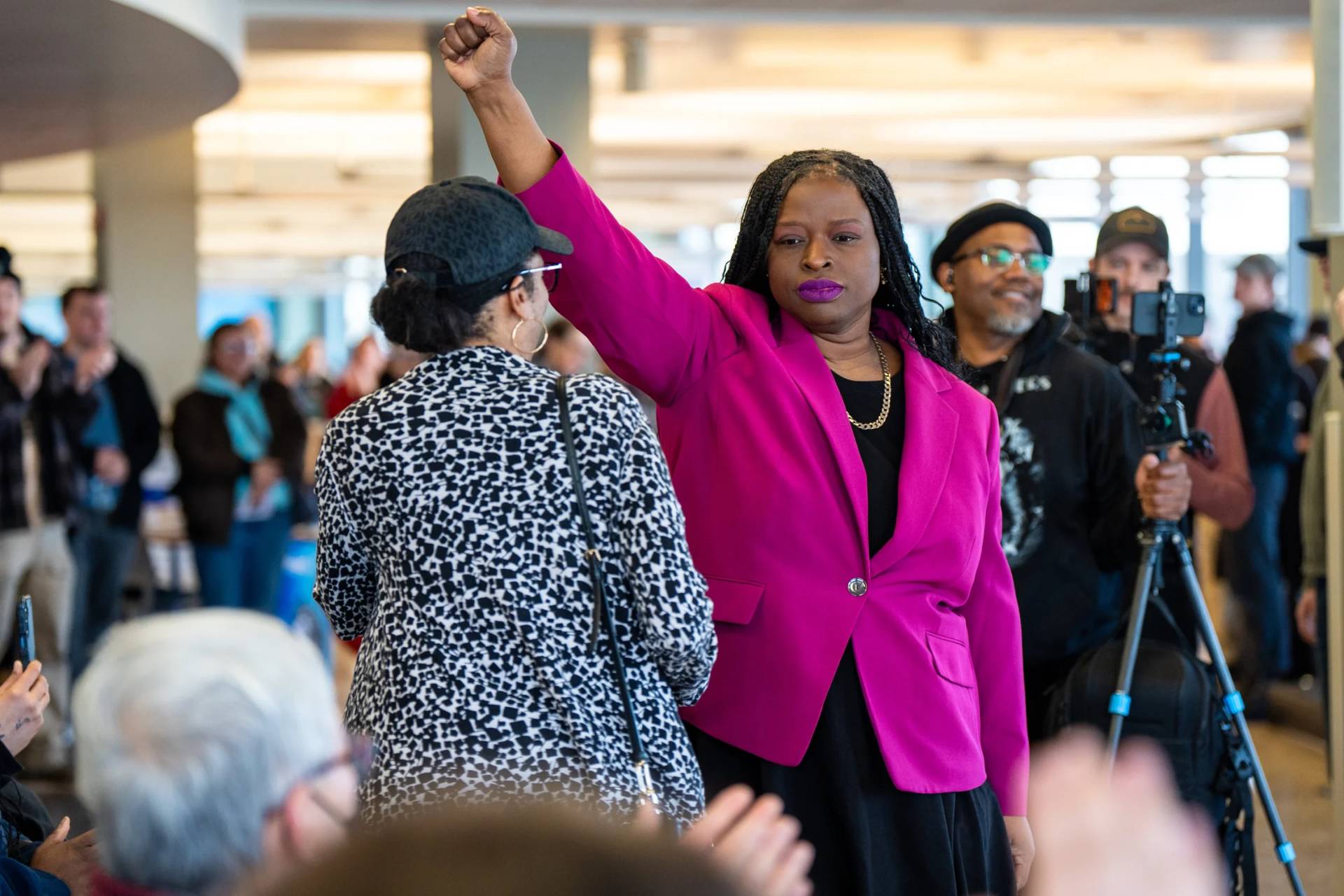NEW YORK – As Congress negotiates the Fiscal Year 2024 budget, dozens of Catholic organizations have signed joint letters to the Senate and Homeland Security Secretary Alejandro Mayorkas opposing immigration proposals in the Biden administration’s supplemental budget request, and questioning the efficacy the measures would have.
“It is questionable whether these proposals would in fact reduce the number of asylum seekers reaching the US-Mexico border in the years ahead,” states the letters, which were sent Jan. 9.
“From our experience, the forces pushing people to flee their homeland, and our domestic labor market’s thirst for workers, are stronger over the long term than any deterrence policies,” the letters said.
The letters are each signed by about 50 Catholic organizations.
The administration’s $106 billion supplemental budget request includes about $14 billion towards border security and the ability to adjudicate asylum claims.
The proposal would fund an additional 1,300 border patrol agents to work alongside the about 20,000 agents already funded in the budget. The funding would also include the addition of 300 border patrol processing coordinators, and an additional 1,600 asylum officers and support staff to hear asylum claims and facilitate timely immigration dispositions.
A fact sheet published by the Department of Homeland Security detailing the supplemental funding request touts the proposals as a continuation of the Biden administration’s migration strategy “focused on enforcement, deterrence and diplomacy.” DHS did not respond to a Crux request for comment.
More so than the proposed hires, the letters focus on the policy aspects of the administration’s request.
The letter takes issue with proposals to raise the asylum standard, to make it mandatory to detain asylum seekers while they await their hearings, to expand expedited removal throughout the country, and to give the president “unbridled authority to close the border.”
Donald Kerwin, a senior research associate at the University of Notre Dame Keough School of Global Affairs, told Crux raising the asylum standard would be a bad faith effort to reform the asylum system.
“It’s an effort to set a standard that’s more difficult to meet than the asylum standard itself, so that people aren’t able to seek asylum,” said Kerwin, who previously held prominent positions with the Catholic Legal Immigration Network, Migration Policy Institute, and Center for Migration Studies of New York.
“It really would eviscerate the asylum system as we know it, which isn’t an ideal system, but it’s certainly better than what’s being proposed,” Kerwin explained.
The problem, however, is the backlog of cases that exists. The government touts on its website a wait period of 180 days or less for a decision on an asylum claim, when in reality there’s an immigration court backlog of more than three million cases with each immigration judge averaging 4,500 pending cases, according to a tracker kept by Syracuse University.
The letters, Kerwin, and others Crux spoke to about the Biden administration’s supplemental budget request all highlighted the need for funding to bring in additional immigration judges and asylum officers to adjudicate claims and address the backlog is most important. The request addresses the need to a degree with the proposed addition of 1,600 asylum officers and support staff.
“That’s kind of the top line of the requests,” Kathleen Busch-Joseph, policy analyst at the Migration Policy Institute, told Crux, noting that’s why MPI supports the administration’s request.
“Additional judges and asylum officers to adjudicate those cases would speed up the grants of asylum for people who are found in need of protection, and also final decisions so the government could remove people,” she said.
Kerwin said addressing the need for judges and ultimately the backlog is a key.
“Do I think the numbers [at the border] are extremely high and do I think the status quo is acceptable? I actually don’t think it’s acceptable,” Kerwin said. “But the other point is, if you were really focused on asylum reform the first thing that you would focus on is the capacity of the court system to be able to entertain cases in a humane and efficient but somewhat expeditious way.”
“The number of judges and the capacity to consider asylum cases and other removal cases hasn’t been adequate and it’s gotten even worse over the years, so why wouldn’t you look at the legal immigration system and have a more holistic reform of the legal immigration system if you were really worried about all the people at the border who are presenting themselves,” he continued.
The nation’s now years-long immigration crisis at the southern border has reached new heights. In FY 2023 border patrol encountered more migrants at the southern border – about 2.5 million – than any fiscal year prior. The numbers so far haven’t let up in the early months of FY 2024. An encounter doesn’t equal someone entering the country – those numbers are less clear.
Kevin Appleby, a senior fellow for the Policy Center for Migration Studies of New York, which signed the letter, pushed back on the narrative that people are “pouring” into the country. He said that’s inaccurate. He also noted that the government has the tools to send people back who don’t have legitimate asylum claims, and that federal policy needs to strike a balance.
“You have to balance the human rights of people to escape persecution with the rights of the sovereign to control its borders,” Appleby said. “I think what we’re saying is there are ways to control the border that don’t require undermining these rights or giving people a chance to seek protection from persecution.”
Appleby added that there are limits to the number of people a country can safely, but whether the U.S. has reached that breaking point is up for debate. He doesn’t think the country is at that point.
“The big question is what’s in the best interest of the people, and what’s in the international common good, which is what [Pope John XXIII] talked about, and under Catholic teaching there are limits,” Appleby said. “As the letter demonstrates, many of us don’t think we’ve reached that limit yet.”
Beyond the FY 2024 budget measures, the letter renews the call many of the organizations and the U.S. bishops have made for bipartisan comprehensive immigration policy reform.
“We renew our call, and that of the US Catholic bishops, for a bipartisan process to comprehensively reform the US immigration system, including the legal immigration system,” the letter states. “With political will and statesmanship, we believe that Congress and the Biden administration can work together to modernize our system while humanely managing our borders and upholding the rule of law.”
Follow John Lavenburg on X: @johnlavenburg














